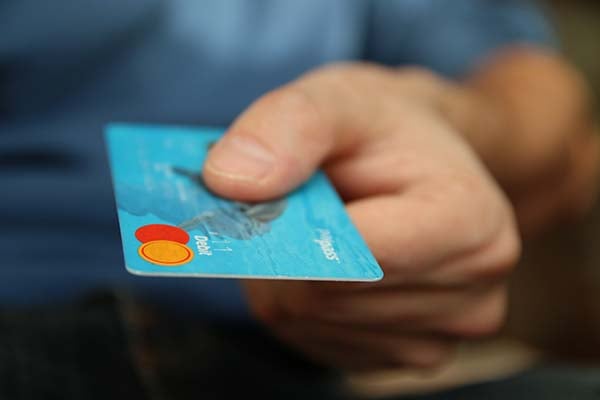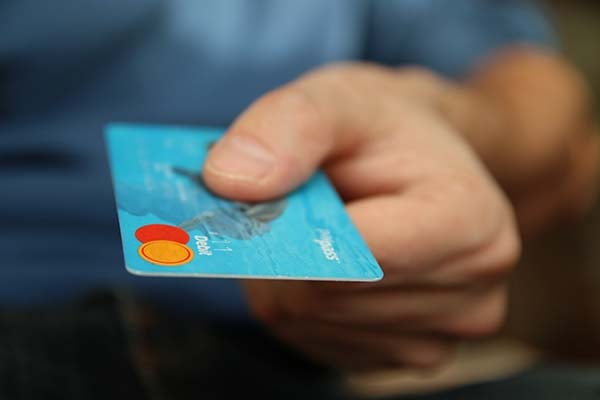You’re a young adult. You’re in college, you just moved out on your own, maybe you just got your first real adult job and you’ve hit the age that all financial responsibilities fall on you now.
It’s freedom but it’s also much more responsibility and budgeting. As a young adult myself and in this current season of life, I have 4 financial tips for young adults that I need to remind myself of daily to help me budget, maximize my savings, and minimize my spending. Here are our top 4 tips:
- Be careful with that shiny credit card
- Cancel subscriptions
- Stop spending money out on food and coffee
- Prepare a list before going grocery shopping
1. Be careful with that shiny credit card
Building credit is HUGE. It is very important for financing options and large investments but very tempting to spend on unnecessary things. I have made it a habit to limit myself to one small reoccurring payment I put on my credit card and pay it off right away each month. This could be gas, groceries, a monthly utility payment, something that you can easily budget but isn’t too costly. This way I am building credit but also paying off my debt quickly and not letting it build up.

2. Cancel subscriptions
Whether big or small, subscriptions are the number one thing I try and cut back on because it’s hard to make room for them in my budget. Nowadays, it is so easy to purchase subscriptions in an app you may have on your phone that you don’t even remember paying that extra $3 a month for, but it’s still coming out of your account. I try to ask myself, “Do I really need Hulu, Netflix, Apple music? Or are there other ways to enjoy the things I love without committing to that monthly payment?” It may seem like a little payment in the moment, but saving that extra $50 dollars a month could be so beneficial.
3. Stop spending money out on food and coffee
This is probably my biggest weakness and the easiest way to blow money. Meeting up with a friend? Meet for food. Ran out of coffee? Go to Starbucks. Birthdays, study sessions, casual hangouts, food, food, coffee, coffee…it’s a vicious cycle. It all comes down to an “urge” for the most part. Sure, there are times when you’re really in a crunch and that afternoon run to Starbucks will change your whole world, but most of the time it’s just a coffee. Find out how to re-create your favorite coffee at home and meet with a friend at the beach, park, or another place as a non-spending option.
4. Prepare a list before going grocery shopping
When I first moved out on my own, this is one area I overlooked as being pretty mindless and easy to budget. Boy was I wrong! I would buy things I normally loved to eat but then realized I couldn’t eat that much on my own and half the things in my fridge went bad. I didn’t realize the importance of meal prepping so I could have something on hand to eat every day. Once I took these things into account I started planning where to shop to cut expenses in half. How to buy things that are healthy and good but have a long shelf life and can be frozen. Also, not swaying on those “afternoon cravings” when you haven’t eaten yet and you’ve decided to shop for food.
Conclusion
Overall, these may seem simple but it’s a daily reminder to think about the things I really need and that I can get the most use out of. It’s the battle of, “Do I want that at this moment because I just want it, or is that something that I can’t live without?” I struggle with those impulse buys every day that present themselves in a variety of ways.
These “quick wins” open the door to looking at other expenses which can have a big impact on your regular monthly expenses. For instance, by belonging to Medi-Share, a health care sharing ministry, I am able to save hundreds of dollars a month on medical expenses. The same is true of reviewing my car insurance and renter’s insurance. Shopping around and finding alternatives that still meet your needs can put your budget on the fast track to meaningful savings.
Imagine, though, if you were to take that $5 to $50 you accidentally almost spent on that “not so important thing” and set it aside in savings, how much that would change your perspective and create healthy spending habits. I’m not saying don’t ever have those “treat yourself” moments, but now I purposefully set aside a limit as to what that looks like weekly and monthly. We could all benefit from a little extra here and there!






